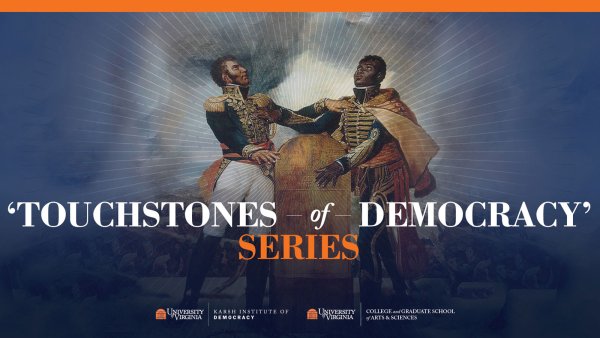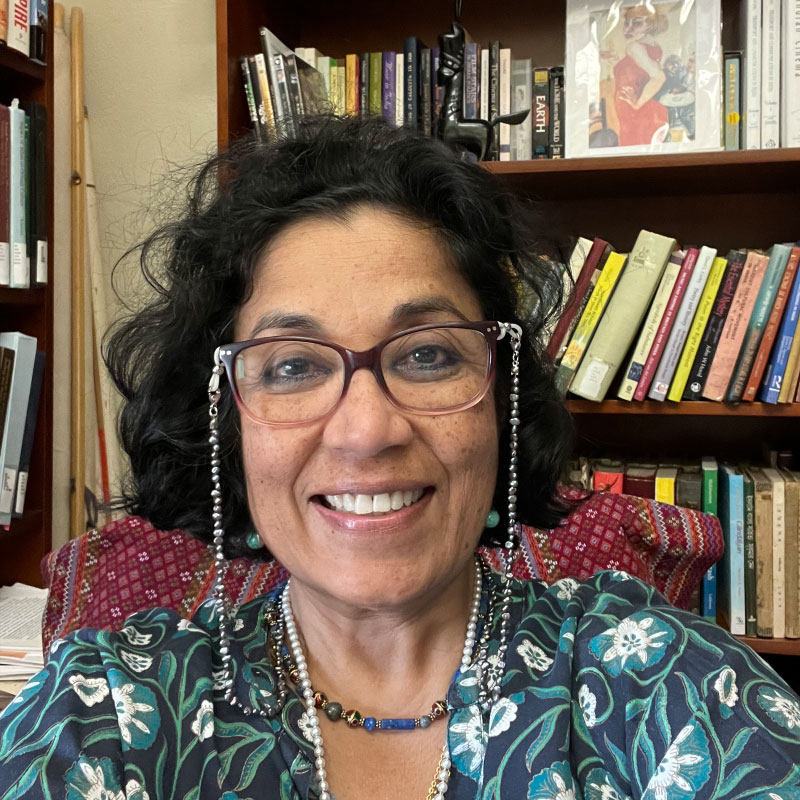The Future of Democracy in India
Indrani Chatterjee, Radha Kumar


Democracy is widely believed to have had an unbroken run in India since 1947. Radha Kumar, independent scholar and former director-general of the Indian think tank Delhi Policy Group, challenges this view in her forthcoming book, The Republic Relearned: A Brief History of Democracy in India (Penguin Random House India, 2024). India’s democracy, she argues, experienced decay for decades, interrupted by three relatively short-lived waves of renewal.
Since the modern Indian republic can now look and act like a totalitarian regime, it appears ever more necessary to synthesize the lessons learned. What can the advocates of democracy in India learn from moments of renewal? Can a cultural ethos and institutions be rebuilt in ways from which other resilient democracies can learn? Indrani Chatterjee, John L Nau III Distinguished Professor of the History and Principles of Democracy at the University of Virginia, talks with Kumar about the potentials of a fourth wave of democratic renewal in India.
The Nau Lab's “Touchstones of Democracy” series explores key events, places, thinkers, and texts that inform the history and principles of democracy. The series is produced by the Karsh Institute of Democracy in partnership with the College and Graduate School of Arts & Sciences.
Speakers

Indrani Chatterjee
Professor of History and Distinguished Chair on Democracy and the History of South Asia, University of Virginia

Indrani Chatterjee
Professor of History and Distinguished Chair on Democracy and the History of South Asia, University of Virginia
A historian of South Asia, Indrani Chatterjee researches the intersections of gender, religion, and politics between the late 17th and 20th centuries.
She is the author of Gender, Slavery, and the Law in Colonial India (Oxford University Press, 1999), editor of Unfamiliar Relations: Family and History in South Asia (2006), and co-editor with Richard Eaton of Slavery and South Asian History (2007). With the aid of two grants from the American Council of Learned Societies and a fellowship at the Yale Agrarian Studies Colloquium, she published Forgotten Friends: Monks, Marriages, and Memories of Northeast India (Oxford University Press, 2013), which won the Srikanth Dutt award from the Nehru Memorial Museum and Library (New Delhi, India). Chatterjee also has contributed chapters to edited volumes and essays to print and electronic journals.
An alumna of St. Stephen’s College, New Delhi and Jawaharlal Nehru University, Chatterjee earned her Ph.D. from the School of Oriental and African Studies at the University of London. Before joining the University of Virginia, she taught for varying lengths of time in colleges of Delhi University (India); SOAS (UK); University of California, Davis; Rutgers-New Brunswick University; and the University of Texas at Austin.
Website: https://as.virginia.edu/faculty-profile/indrani-chatterjee

Radha Kumar
Specialist on Peace and Security in South Asia

Radha Kumar
Specialist on Peace and Security in South Asia
Radha Kumar is former director-general of the Delhi Policy Group and a specialist on peace and security in South Asia. Earlier director of the Mandela Centre for Peace at Jamia Millia Islamia University (2005–2010), Kumar was senior fellow at the Council on Foreign Relations in New York (1999–2003), associate fellow at the Institute for War and Peace Studies at Columbia University (1996–1998), and executive director of the Helsinki Citizen’s Assembly in Prague (1992–1994). She chaired the United Nations University Council and is vice chair of the SIPRI Board. Kumar was one of the group of interlocutors for Jammu and Kashmir appointed by the government of India (2010–2011). Her forthcoming book is The Republic Relearned: A Brief History of Democracy in India (Penguin Random House India, 2024). Her last book, Paradise at War: A Political History of Kashmir (Aleph, 2018), was named one of the top five books on Kashmir by The Financial Times (UK).